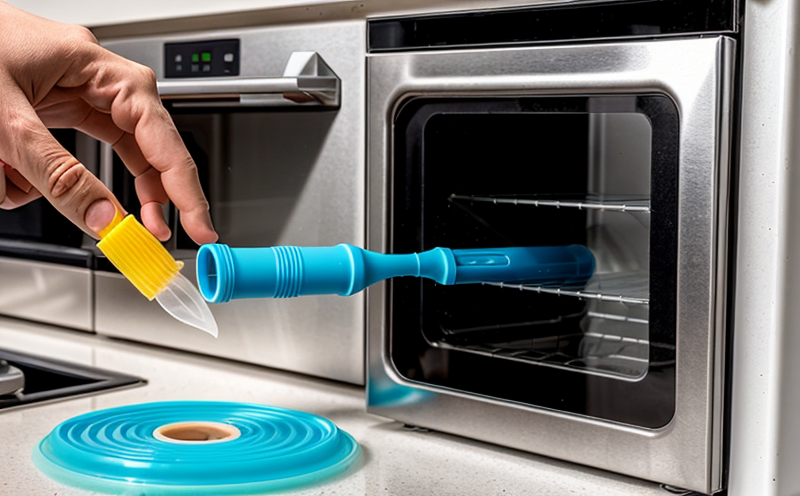ASTM D2196 Rheological Properties Testing of Household Plastics
The ASTM D2196 test method is a critical tool used to evaluate the rheological properties of household plastics. This testing ensures that products meet specifications for performance, safety, and quality in various applications. Understanding rheological properties like viscosity, elasticity, and plasticity is essential for ensuring that household plastics behave as expected under different conditions.
Rheological behavior can significantly impact the durability and functionality of everyday items such as containers, utensils, and packaging materials. Testing these properties helps manufacturers optimize their products to meet market demands while adhering to safety standards.
During rheological testing according to ASTM D2196, a sample is subjected to shear stress in a controlled environment. The behavior of the sample under these conditions provides insights into how it will perform when exposed to real-world stresses and strains. This information is crucial for product development and quality assurance processes.
For household plastics, rheological testing can help identify potential issues early on in the design phase, allowing manufacturers to make necessary adjustments before production begins. Properly conducted tests ensure that final products are safe, reliable, and meet all relevant regulatory requirements.
The ASTM D2196 test method is widely recognized across industries for its precision and accuracy when assessing rheological characteristics of household plastics. By adhering strictly to this standard, laboratories can provide clients with consistent results that are comparable globally.
In summary, ASTM D2196 testing plays a vital role in ensuring the quality and performance of household plastics by measuring their response to mechanical stress through controlled shear experiments. This process helps manufacturers produce safer, more durable products while maintaining compliance with international standards.
Scope and Methodology
| Test Parameters | Description |
|---|---|
| Shear Viscosity | The resistance offered by a fluid to gradual deformation when subjected to shear stress. |
| Elastic Recovery | The ability of an elastic material to return to its original shape after being stretched or compressed. |
| Plastic Deformation | A permanent change in the shape of a material under applied force. |
| Modulus of Rigidity | The ratio between shear stress and shear strain within elastic limits. |
To perform ASTM D2196 testing, samples are prepared according to specified dimensions and tolerances. The samples are then placed into a controlled environment where they undergo shear deformation at various temperatures and speeds. Data points such as shear viscosity, modulus of rigidity, elastic recovery, and plastic deformation are recorded over time.
The data collected from these tests provides valuable insights into the rheological behavior of household plastics under different conditions. This information is essential for ensuring consistent product quality and safety across all manufacturing processes.
Customer Impact and Satisfaction
- Improved Product Quality: By identifying potential issues early in development, customers can improve overall product performance.
- Increased Safety Compliance: Adherence to ASTM standards ensures that products meet necessary safety regulations.
- Better Resource Utilization: Efficient testing processes lead to reduced waste and increased efficiency within manufacturing facilities.
- Enhanced Reputation: Consistent positive outcomes from rigorous testing enhance a company’s reputation among consumers and stakeholders alike.
Clients who utilize our ASTM D2196 rheological testing services benefit greatly from enhanced product quality, improved safety compliance, better resource utilization, and an overall boost in their brand image. These advantages contribute to higher customer satisfaction levels and long-term business success.
Competitive Advantage and Market Impact
The ability to accurately measure rheological properties according to ASTM D2196 offers significant competitive advantages for companies operating within the household plastics sector. By providing accurate data on product performance, manufacturers can differentiate themselves from competitors who may not adhere to such stringent testing protocols.
Companies that invest in high-quality testing services like ours gain a better understanding of their products’ behavior under different conditions, allowing them to innovate and improve existing offerings more effectively than those without comparable resources. This knowledge translates directly into improved market positioning and increased sales potential.
In addition, compliance with international standards such as ASTM D2196 enhances trust between manufacturers and regulatory bodies, which can further strengthen relationships and facilitate smoother operations throughout the supply chain.





